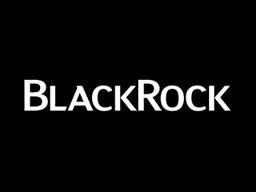
Fink also added that investors are looking for stocks that are more coupon like, with lower risk (General Electric, Coca-Cola, Johnson & Johnson — basically the non-cyclical stocks). The general theme: increased asset flows into the stock market are benefiting BlackRock, Inc. (NYSE:BLK). This can be exemplified by the increase in assets under management in both active and non-active funds.
Asset management trends
Investors are aggressively clamoring into the stock market due to the attractive yields and increased volatility in bonds. Alternative assets like gold, silver, oil, and virtual money (like Bitcoins) have lost a little bit of the luster. United States equities have been able to reach new all-time highs, with asset management companies fearful of missing out on investment opportunities.
Higher beta stocks (stocks with greater volatility) are being bought because of the added alpha (risk adjusted rates of returns). The economic growth within the United States has led investors to actively invest in the stock market. With market returns beating fixed income, and with non-cyclical stocks offering dividends greater than the 10-year treasuries, it is no wonder investors are aggressively putting capital into the stock market.
BlackRock, Inc. (NYSE:BLK)’s results were boosted in part by the macroeconomic environment. According to ICI, mutual fund flows increased by $80.33 billion in January, and $42.86 billion in February. Total mutual funds inflows have increased by $122 billion in the first two months of the year. Increasing mutual fund flows is also what supported the broader market rally.
Investors have shown increased interest in sector ETF’s like the SPDR S&P 500 Trust Series. The interest rate volatility is driven by uncertainty around the Federal Reserve’s open market operations. Investors will most likely sell bonds in anticipation of the Federal Reserve cutting back its open market operations.
The Federal Reserve may raise the discount rate before 2015, and even if it decides not to raise interest rates prior to 2015, it doesn’t change the fact that yields will eventually have to rise and that investors should rotate out of fixed income due to declining par-values.
BlackRock earnings
BlackRock, Inc. (NYSE:BLK)’s revenue grew 9% from last year and the company was able to increase assets under management by 7%. BlackRock continues to attract clientele even as the business is maturing. The company’s operating income improved 12% from $815 million in first quarter of 2012 to $909 million in first quarter of 2013.
Net income grew 11% year-over-year, with diluted EPS growing from $3.16 to $3.65 (16% year-over-year growth). BlackRock, Inc. (NYSE:BLK)’s growth in both the bottom and the top lines was quite impressive as it was driven by both better management (operating margin improved by 90 basis points), and improving demand.
BlackRock, Inc. (NYSE:BLK)’s portfolio of financial products is both robust and expanding. The company’s management team is anticipating growth from cross-sells, which sounds familiar to what other major Wall Street banks have been relying upon for further growth.